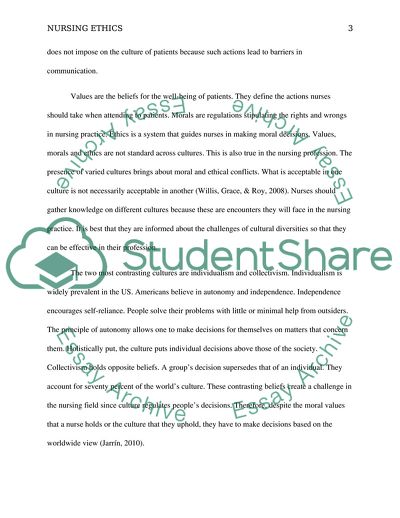My Nursing Ethics Essay Example | Topics and Well Written Essays - 1000 words. https://studentshare.org/nursing/1865638-nursing-ethics-and-morals
My Nursing Ethics Essay Example | Topics and Well Written Essays - 1000 Words. https://studentshare.org/nursing/1865638-nursing-ethics-and-morals.


